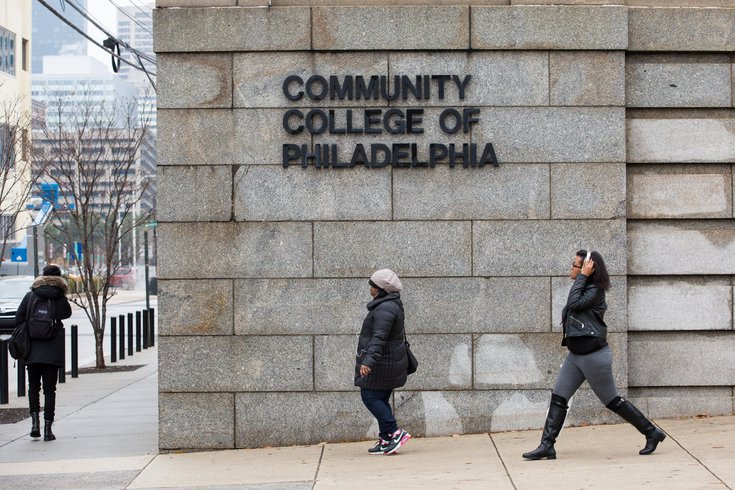
June 15, 2022
 Thom Carroll/For PhillyVoice
Thom Carroll/For PhillyVoice
The Community College of Philadelphia is using $1.4 million in federal funding to pay the outstanding tuition balances of about 1,900 students.
The Community College of Philadelphia is paying off students' unpaid account balances for the second year in a row.
The college is using $1.4 million in federal funding to forgive the debts of 1,900 students who were enrolled during the 2021 summer and fall semesters. Last summer, CCP used $2.75 million to cover the debts of nearly 3,500 students.
"Last year, the college made the conscious decision to pay off the outstanding account balances of about 3,500 of our students — many who were devastated by the COVID-19 pandemic," President Donald "Guy" Generals said. "This year our students are facing yet another financial roadblock: record-high inflation. They are forced to juggle their education, work and their families in addition to the rising cost of housing, transportation and groceries."
The funding comes from the Higher Education Emergency Relief Fund, which was included in the American Rescue Plan. It will cover outstanding tuition and book store balances. Once those balances have been paid, the students will be able to register for classes for upcoming semesters.
Last year, CCP forgave debts in response to a 23% enrollment drop off caused by the pandemic. Many other community colleges also saw enrollment declines.
Rising inflation since has been a major stressor for Americans, many of whom already were struggling due to the economic impacts of COVID-19. The increasing cost of groceries, gas and housing, coupled with supply chain difficulties that have caused recent shortages in baby formula and tampons, has made it difficult for many families to make ends meet.
CCP is one of several colleges that has used federal COVID-19 relief funding to pay off student account balances in an effort to keep students enrolled. Though many colleges provided students emergency relief funding in 2020 and 2021, others have opted not to, as much of the relief funding is not specifically earmarked for any one purpose.
In 2020, the CARES Act — which provided emergency relief funding to educational institutions throughout the country — provided historically Black colleges and universities with a combined $1 billion. More than 20 of the roughly 100 HBCUs used their funding to help students pay off debts.
Alynnda Williams, a Philadelphia native who attended Delaware State University, was able to graduate from the HBCU after the school cleared the balance on her student account. She told CNN that, at one point, she owed the school more than $12,000, adding that it's "ridiculous" that the cost of education is preventing people from achieving their goals.
"Like most Americans, our students are feeling the pressure in our current economy," Generals said. "We simply want to make it easier for them to complete their degree or certificate programs so they can start earning family-sustaining wages."
CCP also continues to use funding from the Community College of Philadelphia Foundation, a network of alumni and other donors, to support students experiencing financial hardships.
"We will continue to use every resource at our disposal to ease the financial burden far too many of our students face," said Jeremiah J. White, Jr., chair of CCP's Board of Trustees. "One less bill means that they can spend less time working overtime and focus on their studies."
Last July, Cheyney University, the nation's oldest HBCU, announced it would erase unpaid student bills from the start of the pandemic onward. University officials said they felt it was especially important to help students directly, noting more than 70% of Cheyney students are Pell Grant recipients.
Other schools that have forgiven or paid off student account balances include La Salle University, which dissolved student account balances for 111 students in the 2021 spring.